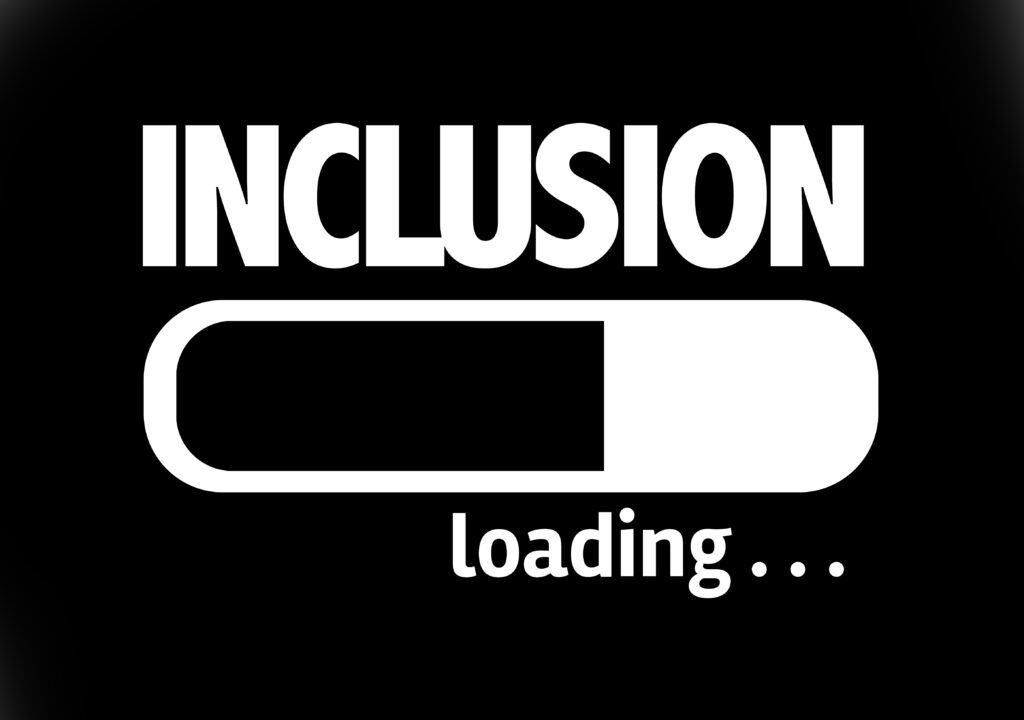The Convention on the Rights of Persons with Disabilities (CRPD) provides a legal framework for people with psychosocial disabilities to hold their governments accountable for realizing their human rights. Under the CRPD reporting process, country reports should reflect the accountability-seekers’ experiences, as well as any positive or negative developments in the country.
A recent study led by Julian Eaton, Assistant Professor at the London School of Hygiene and Tropical Medicine in the UK, assesses the content of the country reports and finds that the CRPD-mandated participation of people with psychosocial disabilities in-country reporting has not yet been realized.
“There is considerable variability in the quality of states’ reporting on psychosocial disabilities when following CRPD accountability processes, despite broad recognition of the importance of the full and meaningful participation of people with psychosocial disabilities,” Eaton and his coauthors write. “We recommend that the first step in addressing disparities in reporting be to improve engagement with representative organizations of people with psychosocial disabilities.”
 The CRPD is an international treaty that has consistently been interpreted by the United Nations to prohibit forced psychiatric treatment. The CRPD Committee, an independent “committee of experts,” has been a leader in discussions of global deinstitutionalization, beginning in Central Asia and Eastern Europe earlier this year.
The CRPD is an international treaty that has consistently been interpreted by the United Nations to prohibit forced psychiatric treatment. The CRPD Committee, an independent “committee of experts,” has been a leader in discussions of global deinstitutionalization, beginning in Central Asia and Eastern Europe earlier this year.
The inclusion of persons with psychosocial disabilities in the CRPD has been subject to debate and controversy. Some argue that expert-driven understandings of psychosocial disability will prevent the full implementation of the CRPD. However, the CRPD Committee’s General Comment 7 clarifies that persons with disabilities are expected to be full participants in the country reporting process, which requires state parties to the treaty to outline their progress in the realization of disability rights in domestic law, policy, and practice.
Eaton and his colleagues evaluated the country reports using criteria based on the CRPD provisions, selecting reports across global regions and income levels. Because a tool for analyzing the reports’ contents did not emerge from a review of relevant literature, the researchers developed their own framework for assessing variables that were particularly pertinent to reporting on the realization of rights of persons with psychosocial disabilities. Five variables based on CRPD principles were used to judge the strengths of the country reports:
Variable 1. The extent of discussion in the report regarding psychosocial disability
Variable 2. Theoretical approaches informing the report’s discussion of psychosocial disability
Variable 3. The extent to which the report distinguishes psychosocial disability from intellectual disability
Variable 4. The extent to which the report addresses CRPD articles considered highly relevant to people with psychosocial disabilities
Variable 5. The extent to which the report’s discussion of accessibility initiatives (such as reasonable accommodation) addresses psychosocial disabilities compared to other disability types
Based on their Variable 1 analysis, the authors found substantial variability in the extent to which country reports discussed psychosocial disability. The Variable 2 analysis demonstrated that “nearly half of the paragraphs discussing psychosocial disability appeared to use a theoretical approach grounded in human rights, although charity, medical, and discriminatory approaches were used in almost all country reports.”
Based on the Variable 3 analysis, it was clear that many countries did not make a distinction between psychosocial and intellectual disability, although this conflation varied substantially between countries.
Disappointingly, it was clear from the Variable 4 analysis that countries did not describe policies ensuring the prioritization of rights of persons with psychosocial disabilities.
Finally, the Variable 5 analysis indicated that “state parties are not implementing, or at least not reporting, reasonable accommodations and accessibility initiatives for persons with psychosocial disabilities (or intellectual disabilities).”
In all, there was considerable variability in the quality of states’ CRPD reporting, with the lower quality of reporting being found in lower-income countries, “which may reflect the effects that limited resources have on reinforcing prejudicial social norms or a lack of exposure to contemporary debates around psychosocial disability in relation to CRPD compliance.”
Based on this research, the authors recommend that the first step in addressing disparities in reporting is to improve engagement with representative organizations of people with lived experiences of psychosocial disabilities.
States must also recognize that meaningful engagement for people with psychosocial disabilities in the CRPD reporting process will require the empowerment of people with psychosocial disabilities to build capacity to participate at the national level.
“Hand in hand with this recommendation is the recognition that meaningful engagement will require the empowerment of people with psychosocial disabilities by providing sufficient resourcing for existing and emerging organizations and building the capacity of national umbrella organizations.”
Without more resources and support for psychosocial disability advocates, the CRPD’s promise of full inclusion of persons with disabilities in the country reporting process will not be fulfilled.
****
Eaton, J. et al. (2021). “Accountability for the Rights of People with Psychosocial Disabilities: An Assessment of Country Reports for the Convention on the Rights of Persons with Disabilities.” Health and Human Rights Journal, 23:1, pp. 175-189. (Link)















Can you recommend some “representative organizations of people with lived experiences of psychosocial disabilities” that we should look into joining, please.
And I happened across this video yesterday, that I thought MiA readers might find of interest.
https://www.youtube.com/watch?v=Rl_Ad-Cfm_M
Report comment
Personally, I am not sure if I am comfortable with the classification of “psychosocial disability.” I think, in many countries, it is a legal term and can/is a determinant of disability. I thought it was interesting that in the “variable list” it was important to note the distinction between psychosocial disability and intellectual disability. What I am confused about is if psychosocial disability includes just the alleged mental illnesses as listed, for instance, in the DSM or does it also includes those on the autism spectrum or others unknown. These type of disabilities do not always seem apparent to others, as someone in a wheelchair might. However, how can you really classify the “psychiatric survivor?” How can you really classify the truth of how disability that could be considered psychosocial? It starts with an iffy diagnosis, then a little prescribed pill and some associated therapizing, and then more pills and more therapizing until you really do have a full-blown disability—brain damage or injury. And, it is both similar and dissimilar to the brain damage or injury caused by sports or other accidents i.e. physically caused versus drug caused. This, seems, to me, beyond psychosocial; because in many ways, the needs of the person change. And, not only that it is the one most hidden; but yet, probably on the verge of gaining near epidemic or epidemic status. It is only because there are those convinced not to go off the drugs by their health care providers, that we don’t see it as much as is out there. But, that is an horrific example of being convinced by fear rather than motivated by the well-being of the “patient.” Thank you.
Report comment
I have never encountered these terms and concepts before. It is all part of the “disabilities rights” movement, I guess. In my area (California) this movement has resulted in things like ramps next to stairways, curb cuts at crosswalks, sounds emitting from traffic signals, seating areas on public transit that must be yielded to disabled people, etc.
This all seems like a good thing. But I am concerned about where this could lead us in the hands of people who don’t really understand the mind and its problems, or just want to “include” as many people as possible on their list of potential victims.
Who would be the most “psychosocially disabled” person you could think of? For me, it would be the person who compulsively lies, cheats, steals, and wishes harm on others, the psychopath. He might already be incarcerated in jail, or he might be roaming free, being a psychiatrist or doing some other similar job. Don’t we have to draw a line somewhere on the subject of inclusion? We don’t need psychopaths running the show on this planet, and many would maintain that they already are.
This study concerns the entire planet. And this planet (if I can believe the stories and images I am presented by a group like Human Rights Watch) is in very poor shape! In “backwards” countries, some people who are seen as “unmanageable” by their families or communities are held prisoner in their houses or in “healing centers” or in places like jails. They are being restrained without due process. We see this happening in a more hidden way in “developed” countries where psych hospitals (or even emergency wards in medical hospitals) are also used to restrain “unmanageable” people without due process. This is clearly wrong-headed, as when most of these people are released from their restraints, they feel better and do reasonably well. However, the narrative never seems to take the turn that I might expect it to take: So, what was wrong with the “normal” people who thought their only choice was to imprison the “abnormal” people? Is someone going around telling people that if they can convince themselves that a family member is psychosocially disabled, they then can have that person as a slave?
I am concentrating on the ambiguities in this subject because I am concerned where it has taken us (so far) here in the United States. The cry for “inclusion” has led to police standing by while rioters loot local businesses, and certain people in positions of power trying to tell me I have no right to speak or be heard because I am too “white.” We cannot be so inclusive and so tolerant that it results in the insane running the show!
Report comment
Your last paragraph “hits the nail on the head.” I, personally, think “inclusion” is a word that deserves some skepticism; such as almost a “double-speak” word. It sounds so good; let’s be inclusive; but there really is no way to be inclusive; unless you are also exclusive. It just doesn’t work. By our very nature, we will exclude some people from our lives and sometimes it is necessary to our health and safety. If I include someone, I will probably exclude someone else. We really need to stop lying to ourselves about this inclusive thing. If you are a parent, for instance, you are probably concerned that your children are not hanging out with people might lead them astray from how you have taught them. As far as being give a “psychosocial disability” designation, I would say spare me. I know there are designations used by Social Security and other disability granting groups; but other than a “psychosocial” designation is utterly useless, explains nothing, and probably has negative outcomes for the person so designated. Let us drop it now before more people are hurt. Thank you.
Report comment
I appreciate your comment.
Report comment